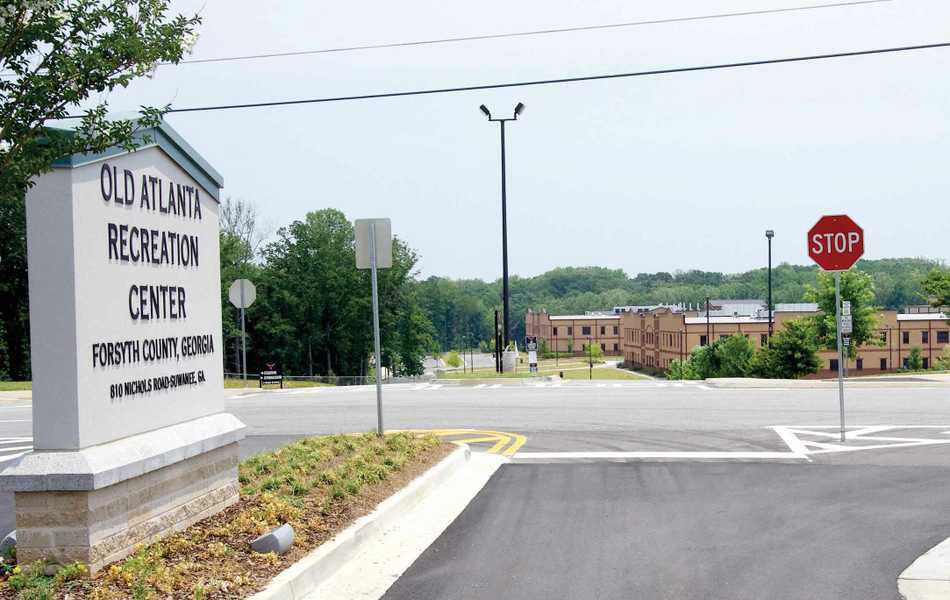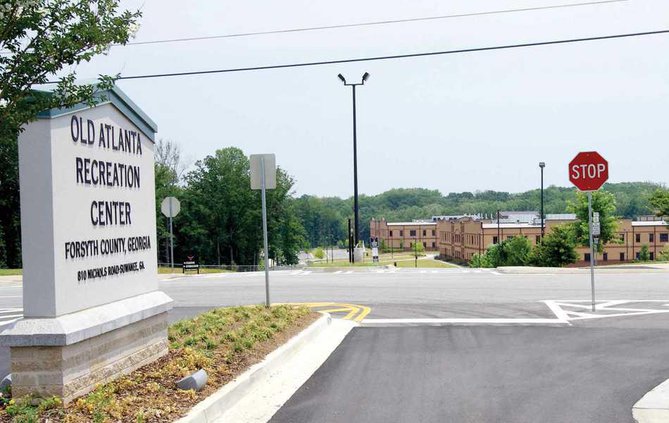SOUTH FORSYTH — It’s not the field trip they may have imagined, but a group of local high school students recently toured a funeral home. Forsyth County’s juvenile court sent them there not on drug charges or for fighting, but for jaywalking.
Some parents thought the punishment — which also carried a fine, a 1,200-word essay and having to read their own obituary to their parents — to a ticket was extreme. However, court officials and Lambert High’s school resource officers say it was necessary to keep them safe.
Forsyth County Sheriff’s Sgt. Rob Heagerty said Lambert’s two officers had reported noticing students crossing Old Atlanta Road, which has no crosswalk. It does have five lanes of traffic on a divided highway and a 45 mph speed zone.
Then they started getting complaints from motorists.
“The ones they caught were given verbal warnings [not to cross],” Heagerty said. “Obviously, that didn’t work.”
So they ticketed 11 students in a two- or three-day period in October, he said. Two more were cited in December. All tickets were issued after school and to students of varying grade levels. He said he didn’t think any student was cited twice.
“They leave school and want to cross to get to where their vehicles are parked [at a county fitness center or home in the adjacent subdivision],” he said. “They see it as a shortcut, but it’s not safe.”
Concerned parents said they want safety, but wondered whether there was a better way to get the point across without having to take their children to court over a jaywalking ticket.
One option was the question of getting a crosswalk on Old Atlanta Road.
Crosswalks sit at both Old Atlanta intersections near campus — Nichols and James Burgess roads — and school resource officers are there to direct traffic during the after-school rush.
Heagerty said the Nichols intersection is about 30 yards from the parking lot in question, while the James Burgess crosswalk is a “couple hundred yards” away.
“If a student was ticketed, it was in a dangerous location,” said Lambert Principal Gary Davison. “The crosswalks we have at those two intersections, they’re large enough and at the optimal locations for drivers to see.
“I feel like we have the right number of crosswalks, and I just want students to use the ones we have.”
In court, students were asked why they took the shorter route, said Rebecca Rusk, juvenile court administrator.
“It came down to following their peers,” she said.
Ticketed students were sent through a program called Reality Check, in which they were shown what the aftermath could be for their parents if they were to be injured or killed while crossing the road.
They were taken through the process of planning a funeral, which included pricing a casket and touring the embalming room and crematorium.
Then they wrote their own obituary and read it to their parents before penning a 1,200-word essay.
“It’s a very sobering experience,” Rusk said.
The program, which has been in existence for “a couple of years,” is tailored to various traffic court violations. Young people going through the program on drug or DUI charges may encounter something different, she said.
“Our goal is for them to become positive role models and change the culture of cutting across that … highway,” Rusk said. “Officers tried to issue warnings. It was not changing anything. They were even walking across the street in front of police cruisers. It was just not getting the attention of the kids.
“We felt like the only way to [fix it] was to bring the parents, the kids, everyone together.”
Student’s cases are diverted upon completion of the program, meaning they’re essentially dismissed with payment of the fine.
“It’s done as a traffic violation. There is no criminal record of any kind,” said Rusk, adding that the ticket doesn’t put points on their driver’s license.
Heagerty said while it may seem extreme, “As with all traffic enforcement, some education has to be done.”
Since students began entering the program in December, no jaywalking tickets have been issued.
“There’ve been no other citizen complaints,” Heagerty said. “So I think it worked.”

